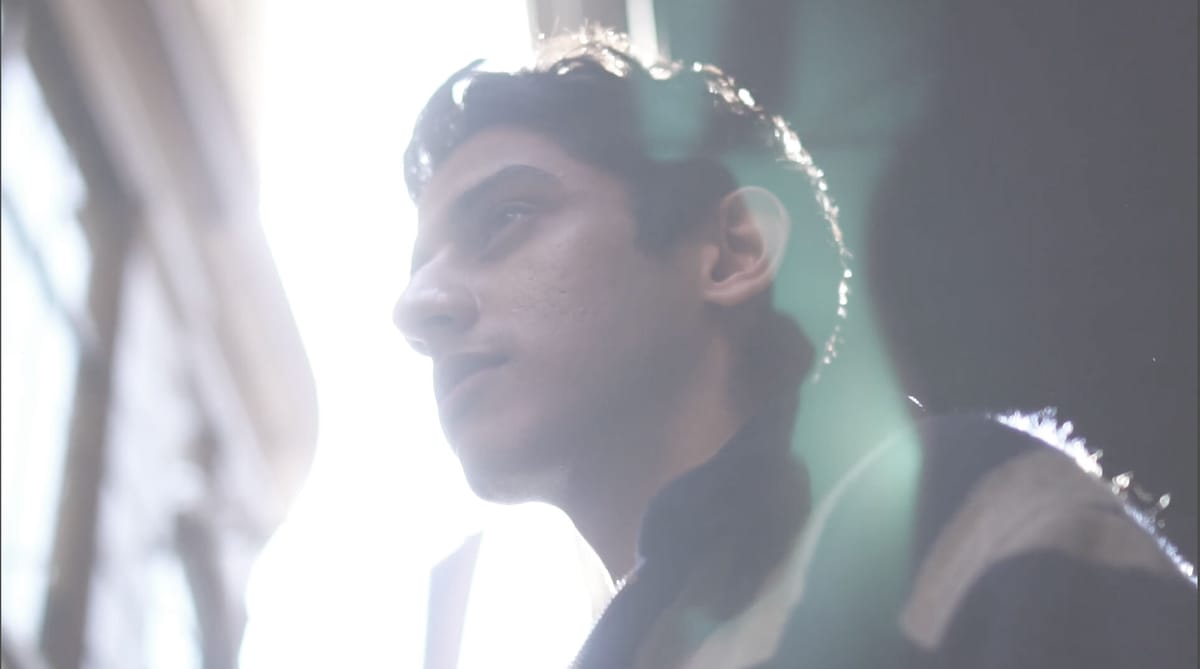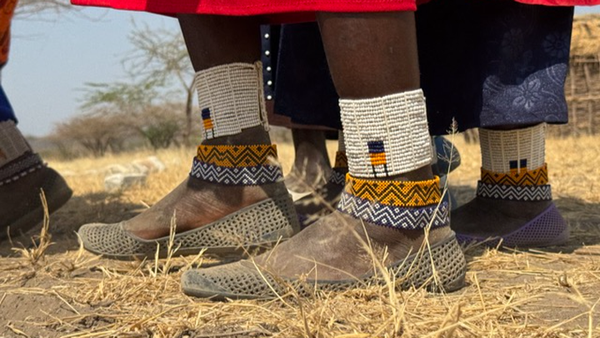Short Film ‘My Name Is’ Shows Why We Need to Embrace the Power of Our Names, Regardless of Western Expectations
Watching other people with non-western names get real about the pressure to conform to the 'norm' was an empowering experience for me, who's been shortening my name to accommodate others.

Access the Audio Read version of this article directly on Spotify for Podcasters.
When it comes to the meaning of a name, there is a lot to unpack, so please bear with me while I sort through my feelings here.
My name, Chourouk, means sunrise in Arabic. Some of you might be thinking it’s a beautiful name (and I think it is). Who wouldn’t want their name to be linked to the sun, right? I love the meaning of my name: it encapsulates something beautiful, vibrant, and warm, which I like to think matches with who I am.
I grew up in France, and as we all know, we’re not the best version of ourselves as kids – especially at school. We’re dirty, learn all sorts of useless things, play until we crash, and love to make fun of other people – whether it’s to fit in our community or because we’re just too young to realise that words have actual consequences.
A few weeks ago, I watched ‘My Name Is’, a short film by Tony Giroux. The mini-documentary series dives into the experiences of individuals with non-Western first names, the link between their names and their identity, and how it correlates to the pressure of conforming to westernised English norms. I was hooked.
When I asked Giroux how he would present his work in his own words, he said it touched on “an issue of name biasing” that was foreign to him up until he started developing the documentary, but that the film explored “the universal values of respect, inclusion, and togetherness” at its core. He added, “I find the society I live in to be unfortunately very separated. The making of this film has taught me so much, filled me with humility, and I think everyone will be able to relate to it in some aspect.”
And I did relate. Sharing their stories meant exposing their sensitivity, their scars, their hopes, and their strengths. It was a powerful experience to watch this level of vulnerability and feel like I too, was relevant, and didn’t have to conform to westernised expectations. That I shouldn’t feel shame towards a name that holds so much meaning to me. In my name lives my identity, my heritage as a Tunisian, and my parents, who shared their love for me through this powerful name. It’s me as a whole, present and perfectly imperfect.
In the film, Pereko Makgothi, a South African actress, voice-over artist, and co-founder of Last Looks Beauty, an Afro/ethnic hair consultancy and agency, shared her own experience, from South Africa to the UK, and I found so much strength in her testimonial. “It has been a journey of finding the respect for my name and what that looks like within myself, then having to see how that translates into spaces where I meet other people,” she said. “Most of the time, people rarely listened to me or tried to pronounce my name correctly, which has instilled a need for me to be proactive in asserting the pronunciation of my name, to show them that they can learn it too.”
It took me a while to develop a peaceful relationship with my name, and the fact that it sounds ‘exotic’ to some, hard to pronounce to others, or that people usually can’t tell ‘whether I’m a man or a woman’. But I’ve embraced it over time, even though, I have to admit, I could do better.
When you’re a child and people twist your name, whether on purpose or not, it sticks with you. I can recall the endless times my name was incorrectly pronounced on purpose by other children and adults (yes, adults), or when teachers were taking attendance and assumed that I was a boy every single time. Or how until today, people still cannot pronounce my name. It sticks with you, even when you tell yourself it doesn’t matter.
It can be daunting, and exhausting, to have to repeat yourself over and over again to strangers, so I’ve learnt to shorten my name over the years to make my life easier. What used to be a nickname only used by close friends became a free pass for all, because it was easier for me to introduce myself as Chou rather than my real name. Not that I particularly like the name, but I can’t be bothered to repeat my full name multiple times or hear people butcher it. It was ‘convenient’ to me, but as I watched ‘My Name Is’, I had an epiphany.
When you shorten your name or tweak it slightly for convenience or to fit people’s expectations of what a ‘normal’ name should sound like, you lose a part of your identity. It just gets cut off with it. I have let people take away a part of my identity.
When I talked to Dr Javeria Khadija Shah, an artist, scholarly activist, founder of the Social Performance Network, and principal investigator in the film, and asked about the process of reclaiming her name and how she feels about it today, she said: “Embarking on the project journey for ‘My Name Is’ was a huge catalyst in pushing me towards finally reclaiming my name. As I shared in the film, it’s something I was grappling with for a while. When I watched the first edit of the film just before the pandemic, I was deeply affected by the stories of others as well as my own - so I made a decision and began to transition back to “Javeria” from “Jo” after 25 years. Watching myself back in the film is always emotional, and feels like a strange sort of time travel, as I witness a former version of myself in a dilemma around name and identity. Today, I feel whole again, being back in my given name.”
So here’s the deal: from now on, I will only introduce myself by my real, full name. I will repeat if I need to, will take no offense if people ask me to repeat it, and if they still can’t pronounce it correctly, I will try not to feel bothered or uncomfortable to a point where I need to give the ‘Chou’ free pass. Instead, I will let them do the work. It shouldn’t be down to me to change my name to fit people’s perceptions of a ‘good’ and ‘easy’ name.
Giroux said, “I hope this film can start a conversation on those universal values and help build bridges towards unity within our differences,” and I couldn’t agree more. The world could do with diverse and meaningful names that carry with them stories, and less with people making us feel embarrassed for carrying them. Your name, just like you, is valid.





